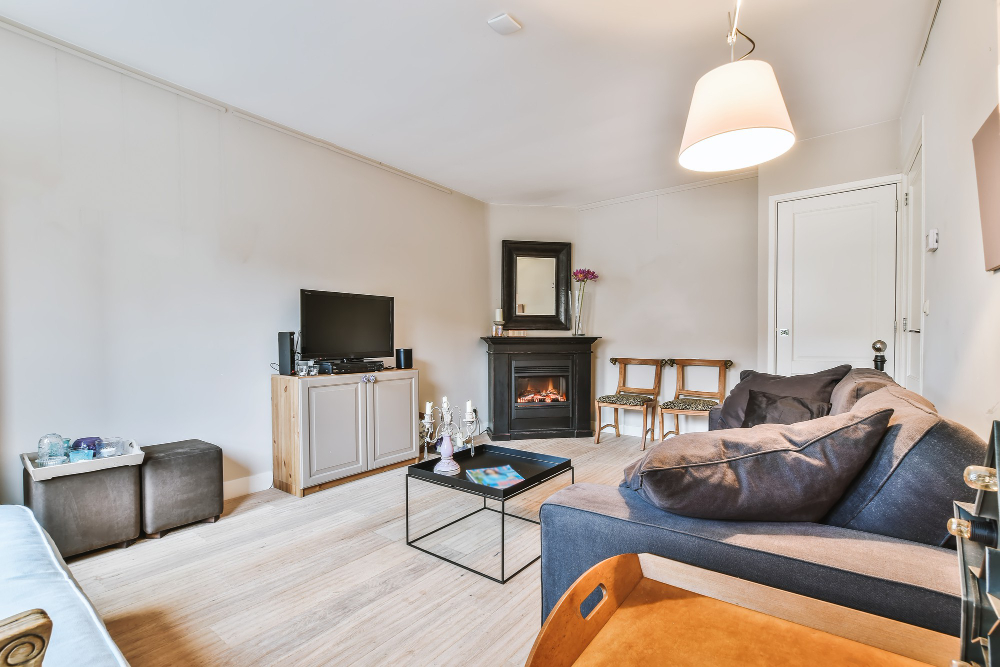Let’s be honest: being a short-term rental host isn’t all sunshine and rainbows. Sometimes, things go sideways. A difficult guest shows up, or, worse, a bad review pops up on your listing. The good news? You don’t have to lose sleep over it.
With the right mindset and some proactive steps, you can handle even the trickiest of guests and the nastiest of reviews. In this article, we’ll show you how to prepare for difficult situations before they happen, how to manage them gracefully when they do, and how to bounce back stronger.

Proactivity pays off
The best defense is a good offense. The more you prepare ahead of time, the fewer issues you’ll face down the road. Here’s how to set yourself (and your guests) up for success before anyone even steps foot on your property:
1. Turn off instant bookings
Sure, instant booking can fill up your calendar quickly, but it can also leave you vulnerable to guests who may not be the best fit for your space. By turning off instant bookings, you give yourself the chance to vet potential guests and make sure they align with your property’s vibe. Plus, this extra step allows you to message them beforehand to ensure they understand what you’re offering.
2. Check guests’ profiles
Take a moment to review your guests’ profiles before confirming their stay. Look for previous reviews from other hosts. Do they leave properties in good condition? Are they respectful? A thorough profile check can save you a lot of headaches later on.
3. Provide clear house rules
Your house rules are your safety net. Make them clear, firm, and easy to understand. Whether it’s a no-party policy, quiet hours, or guidelines for using certain amenities, guests should know exactly what’s expected of them before they book.
4. Set clear expectations before arrival
Transparency is key. If your property is located near a busy street or has quirks like a steep staircase, mention it in your listing. Guests who know what to expect are less likely to complain. Be sure to describe in detail any property flaws to establish trust with potential guests.

Managing issues when they arise
Even with all the preparation in the world, issues can still pop up. When they do, it’s all about how you handle them. Here’s how to stay calm and professional while solving problems on the fly:
5. Stay cool when things heat up
Difficult guests are inevitable. Maybe they didn’t read the listing carefully or had unrealistic expectations, but when they start complaining, your first move should be to keep calm. Don’t take anything personally. Instead, respond with empathy and patience. A simple, “I’m really sorry to hear that. Let’s see how we can fix it” goes a long way. Most guests just want to feel heard, and a calm, composed response can diffuse tension quickly.
6. Communicate professionally
When addressing complaints, professionalism is key. Stick to facts and avoid emotional responses. Guests appreciate clear, concise communication. If the issue is something you can fix immediately, let them know you’re on it. If it’s a bigger issue (like a broken appliance that will take time to repair), be transparent about the timeline. Above all, keep the conversation respectful and polite, even if the guest isn’t being as courteous.
7. Offer solutions, not excuses
No one wants to hear excuses when something goes wrong. Instead of explaining why an issue occurred, focus on how you’re going to solve it. For example, if a guest complains that the heating isn’t working, don’t tell them about the old boiler—just let them know when it will be fixed or offer an alternative solution like extra blankets.

Responding to reviews with tact
Negative reviews happen to the best of us. The key is not to let one bad apple spoil the bunch. Here’s how to handle reviews—both good and bad—gracefully:
8. Respond politely and address the issue
When a bad review comes in, your response is just as important as the review itself. Future guests will judge you based on how you handle criticism. Always respond politely, thank the guest for their feedback, and address any issues they raise. Even if the review feels harsh, staying composed will show potential guests that you’re professional and responsive. Keep your responses short, factual, and respectful.
9. Consider a refund
Sometimes, offering a partial refund can turn an unhappy guest into a satisfied one. If their complaints are legitimate (like a plumbing issue that wasn’t resolved quickly), a small refund or a discount on a future stay shows goodwill. However, don’t offer refunds too readily, especially if the complaints seem exaggerated or unfair. Weigh the situation carefully and only offer compensation when it’s truly warranted.
10. Learn from every experience
Every difficult guest or negative review is a learning opportunity. Take the feedback seriously and use it to improve your hosting. Did a guest complain about something you could have mentioned in the listing? Fix it for the future. Did a guest have an issue that could have been avoided with better communication? Adjust your approach next time. With each challenge, you’ll become a better host.

Common mistakes to avoid when dealing with difficult guests
As much as you can prepare for tricky guests, there are a few common mistakes that can make things worse. Here’s what to avoid:
- Not keeping a record of all conversations: Always document your communications with guests. Whether it’s through the booking platform’s messaging system or email, having a record of your conversations protects you if any disputes arise. This can also be helpful when responding to a negative review, as you’ll have a clear timeline of what was said and done.
- Blaming your guests: No matter how difficult a guest is, avoid blaming them for the situation. Even if they missed a detail in the listing or didn’t follow the house rules, blaming them will only escalate the problem. Instead, focus on finding a solution. Remember, you’re the host and part of that role is keeping things positive, even when you feel frustrated.
- Not having insurance: Don’t leave yourself unprotected. Accidents happen, and if a guest damages your property, you’ll want proper insurance coverage to avoid paying out of pocket. Many short-term rental platforms offer host protection, but it’s also worth looking into additional coverage to ensure you’re fully protected.

Handling difficult guests and negative reviews: the bottom line
Handling difficult guests and negative reviews is an inevitable part of the hosting journey, but with the right tools and mindset, it doesn’t have to derail your success. With these tips, you can turn even the most challenging encounters into opportunities for growth. Luckily, you’re not alone in this journey.
Hosthub makes hosting easier with its Unified Inbox with AI assistant, which keeps all your guest messages in one place. This way, you can reply quickly and clearly, avoiding misunderstandings. Plus, with automated messages and synced calendars, you won’t have to worry about double bookings and disappointed guests. So stay calm, host smart, and let Hosthub turn your challenges into five-star experiences!

